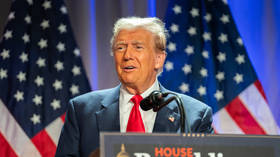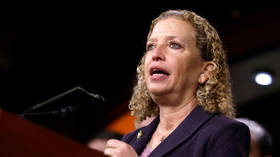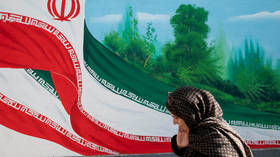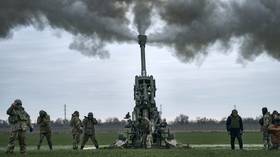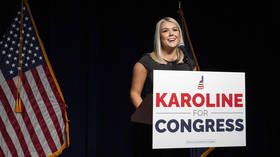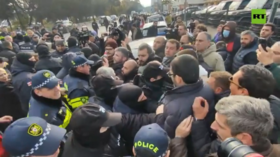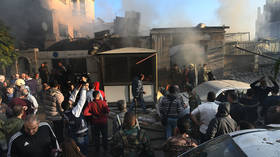Feel free to report: ‘Sending arms to Syrian rebels is now legal and covered by the Arab League’
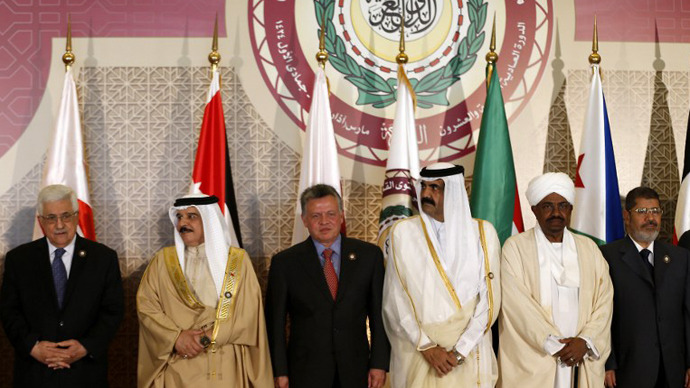
The Arab League has affirmed member states' right to give military support to the Syrian insurgency. But Syria Tribune editor-in-chief Ali Mohamad says it was the legalization of existing military aid in a bid to let the media report freely on the issue.
The Arab League summit on Tuesday has granted the Syrian seat in
the body to the opposition Syrian National Coalition in a symbolic
move presented as an important victory against the Syrian
government.
The summit also issued a draft resolution on Syria, reaffirming
“the right of every [member] state to offer all forms of
self-defense, including military, to support the resistance of the
Syrian people and the Free Syrian Army.”
“Syrian people alone should determine who rules the
country,” the leader of the foreign-backed opposition
delegation, Moaz al-Khatib, proclaimed upon taking the seat despite
his earlier official resignation from the body. Khatib was
accompanied by the recently appointed prime minister of the SNC,
Ghassan Hitto, a Western-educated former
businessman and US citizen whose candidacy had faced resistance not
only within the self-proclaimed governing opposition body, but also
among the divided group fighting on the ground.
Upon taking the seat in the league, Khatib immediately demanded
further support and broader recognition for the SNC. According to
Khatib, the opposition is now eyeing Syria’s seats in other
international organizations, including the United Nations. In the
meantime, he had requested NATO to effectively impose a partial
no-fly zone over Syria by extending the Patriot missile-defense
protections deployed in Turkey to cover northern parts of Syria
held by the rebels.
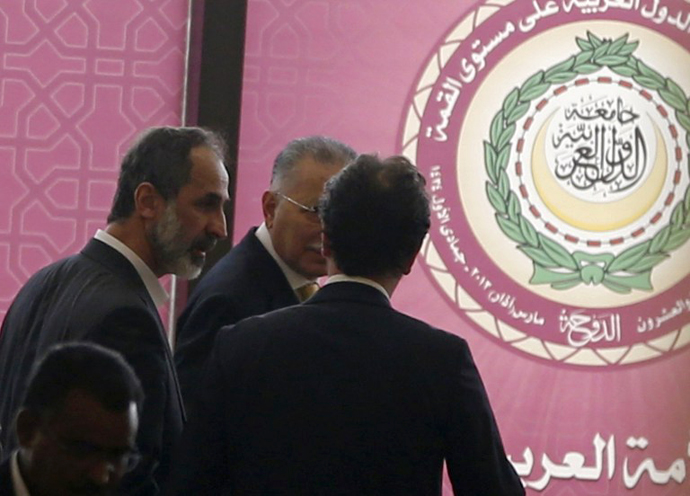
The Arab states have been sending to the rebels as much military aid as they could for the past year, Syria Tribune editor-in-chief Ali Mohamad told RT, adding that he doesn’t see what else they could send to “topple the balance of power on the ground.”
RT:The Gulf States have been allegedly sending arms to Syria's rebels for a long time now. Will this official resolution change anything?
Ali Mohamad: Not on the ground, no. They want it to be a media victory for the opposition but on the ground they’ve been sending weapons in large quantities – all they can send. And I don’t think they can send anymore. They will just keep sending what they are already sending but with media cover which shows what they’re doing is legal and covered by the Arab League.
RT:Would it also mean that if it is now legal, that more weapons will be coming from those states, and will it make any difference to what is happening in Syria now?
AM: They have been sending as much as they could for the past year or more so I don’t see how they can do more to topple the balance of power on the ground. The problem is the rebels don’t have public support and without the public support, no one can fight. And regardless of how many weapons they are sending or will be sending, the balance will still be the same in favor of the Syrian army.
RT:The summit in Qatar is seen by some as a diplomatic triumph for the Syrian opposition with its leader - who previously said he was resigning - taking the seat at the gathering. How much political weight do they really have among the Syrian people?
AM: People whose political weight is so doubtful are given Syrian seats in the Arab League. I think if we examine the image, we see that this is no victory for them at any level because the person sitting is actually resigned and he’s not taken back his resignation yet and the person next to him who is supposedly the interim PM was rejected by all the fighting forces on the ground. So they want it to look like a victory but it’s really more like a joke in reality.
RT:The Syrian opposition leader called on the US to help more and bring the conflict to an end. After many months of non-lethal aid, will Washington get involved militarily?
AM: Directly, no. I don’t see this happening, especially with the Russian stance very clear that this should not happen. But the US has been involved in ways more than non-lethal aid. We know that more than 500 fighters were trained by the US in Jordan and entered Syria just recently and have been conducting fighting in parts of the country so the US is involved but the frustrating thing is, if Moaz al-Khatib or anyone else in the opposition can only win if the US gets more involved, then what does that say about their weight inside the country?
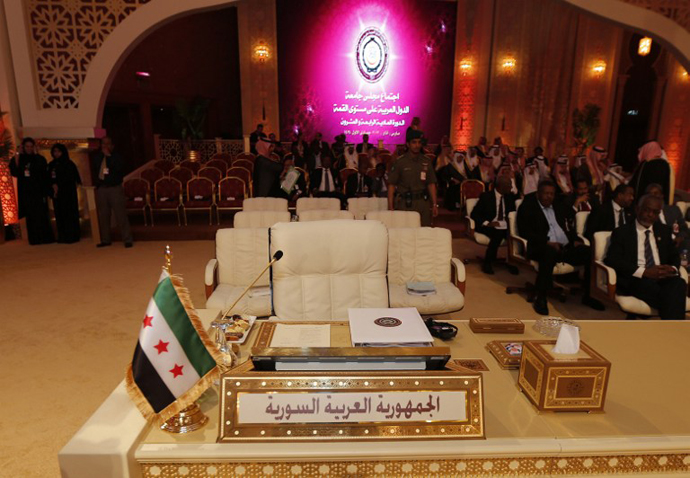
RT:With the Syrian opposition so divided, do they have influence on the rebels on the ground who are being infiltrated by Islamic extremists?
AM: We don’t have to guess. The rebels fighting on the ground rejected the interim PM directly. And they hardly accepted the coalition itself. So we don’t really need to guess here. No. They have absolutely no control. Moaz al-Khatib was flirting with extremists today, saying they are people with a weak conscience who refuse to watch the killing without coming and interfering. He’s talking about non Syrian people who are coming to fight, Islamic extremists coming from outside the country to fight the Syrian people. This is what the person supposedly representing the Syrian people is saying. And this is outrageous to me as a Syrian and to a large majority of the Syrian people.
RT:So what is the prediction for the future? Will Assad hold on? Do you see the conflict going on and on, with more and more deaths?
AM: Yes. We are looking at months of escalation and violence and now we have a very good indication to talk about chemical weapons and use of chemical weapons by rebels in northern Syria. So yes we are looking at a lot of deaths, a lot of causalities, and a huge price to be paid by the Syrian people without actually changing the balance of power on the ground.
RT:But chemical weapons – that’s an alarming development. Many thought Assad was potentially using chemical weapons but now there are accusations that the rebels themselves could have used them just recently. Where would they be getting those weapons from?
AM: After an investigation done by the Syrian Tribune team, we can say that they used a form of chlorine gas which came from a factory which they have been controlling for the past three months, as I remember. I’m sure the viewers know that chemical weapons can be produced and launched by simple means and what it takes is the decision to use them, which terrorists don’t have a problem with. And why would the Syrian army use chemical weapons? The Syrian Army has enough means to control the conflict and don’t need to do that.
RT:Of course the use of chemical weapons by the rebels wouldn’t be with the consent of the Free Syrian Army of the SNC would it?
AM: There’s no such a thing as the consent of the Free
Syrian Army because the FSA isn’t an entity. It’s just a large
group of many factions fighting together for one reason or another,
some for religious reasons, some for stealing, some actually
wanting to topple Assad. So there is no single entity or head of
staff who can control what’s going on on the ground. So with or
without the consent of anyone in the opposition, this will not make
any difference.
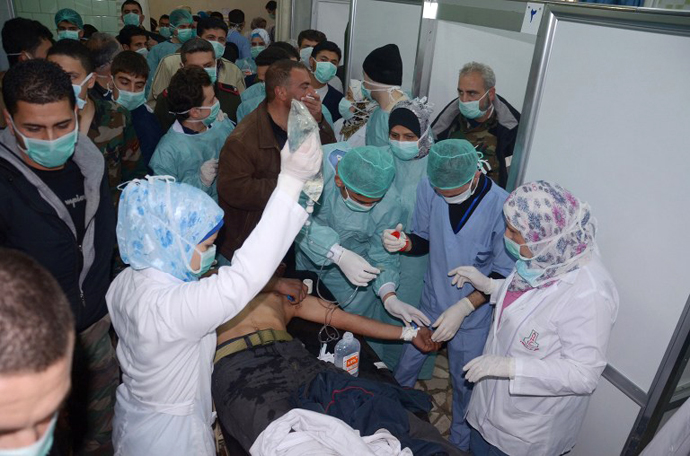
RT:Britain and France have been calling for the
rebels to be armed. Is what’s being said by the Gulf States
something that they are doing on behalf of European
interests?
AM: We can absolutely see it like that. Especially with the
EU not being very keen on removing the arms embargo on Syria so I
suppose with everything that has been happening and Syria’s push
toward dialogue and ending the conflict as it should be, the gulf
states were terrified this could end their interest in the country
and they wanted to escalate more and end the possibility of
dialogue.
RT:With those Gulf States supporting the rebels
officially, what about the reaction from Iran?
AM: So far the Syrian government and Syrian people do not
need any direct support from Iran or anyone else on the ground. But
the political and human support, especially with medical equipment
and medical teams, this is welcome. The problem with this is not
only within the Syrian borders. Lebanon is starting to suffer and
we saw the resignation of the government… There are a lot of dark
possibilities in that country. Iraq and Jordan are in danger. No
one can control what will happen if the conflict continues and the
flood of extremists continues and the support with money and
weapons.
The statements, views and opinions expressed in this column are solely those of the author and do not necessarily represent those of RT.


